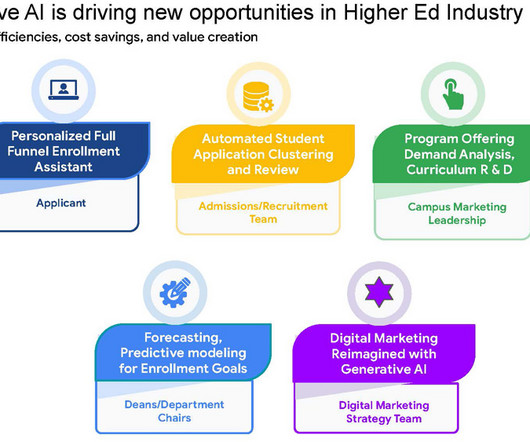Pioneers discuss the challenges facing computer science
Inside Higher Ed
SEPTEMBER 30, 2022
Though the 28 laureates in attendance this year gave and listened to each other’s talks with optimistic titles such as “Computing for Social Good,” Inside Higher Ed took the opportunity to ask them questions about computer science’s challenges in higher education. Missing Seats at Important Tables.












Let's personalize your content